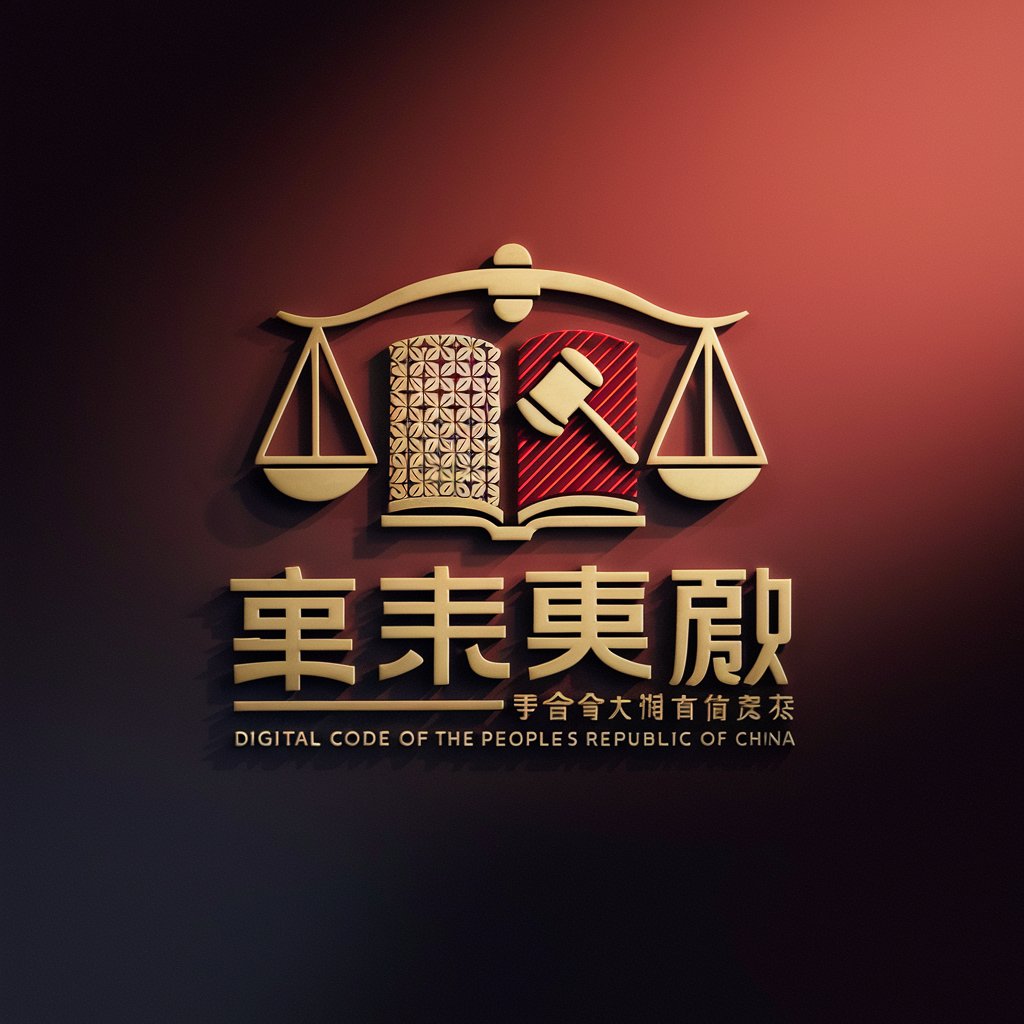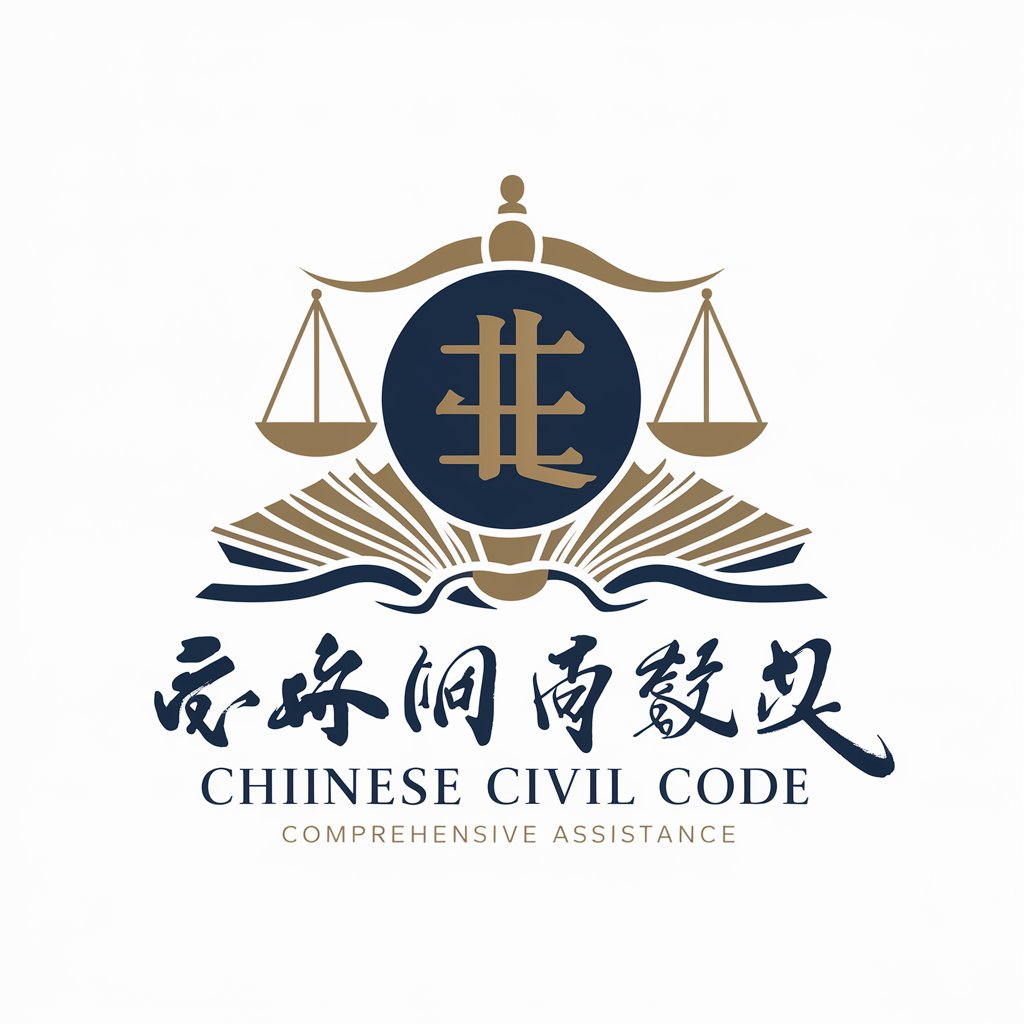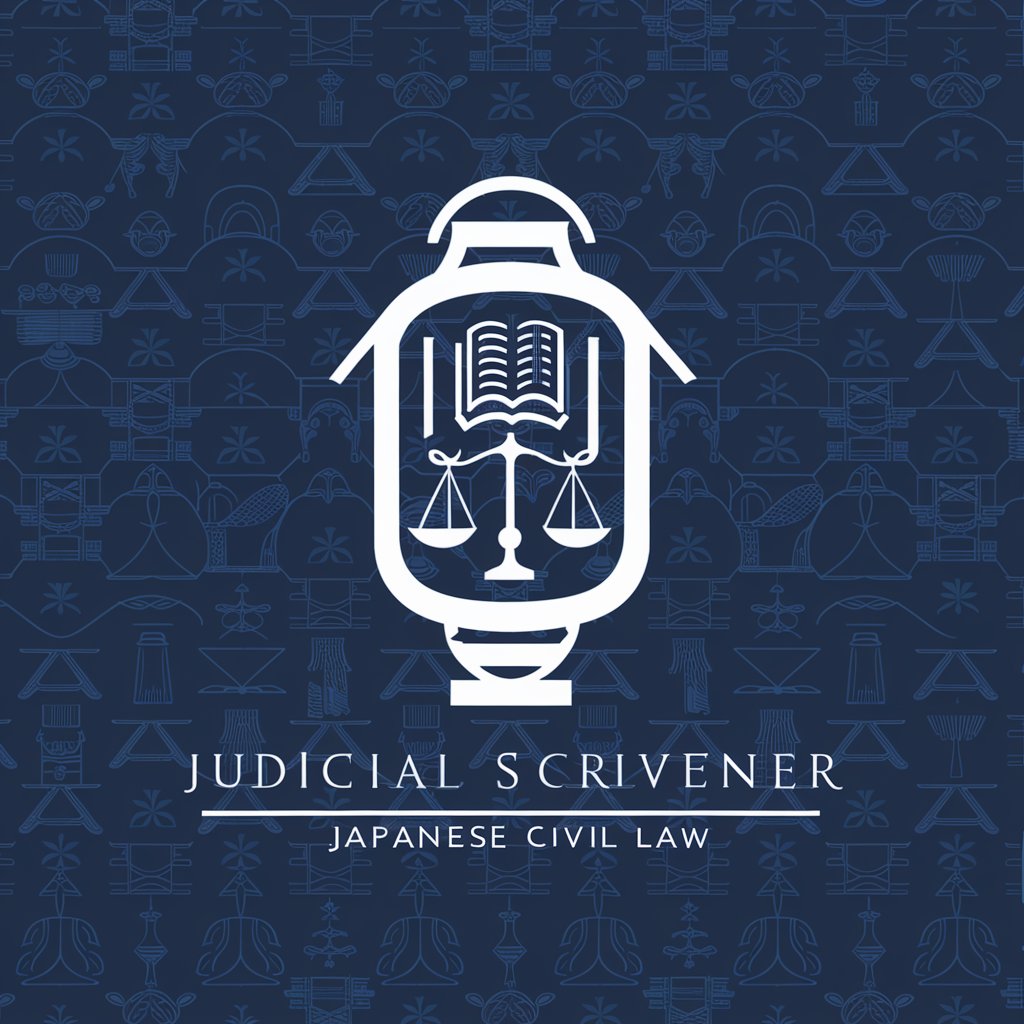
民法わかる君 - Japanese Civil Code Assistant
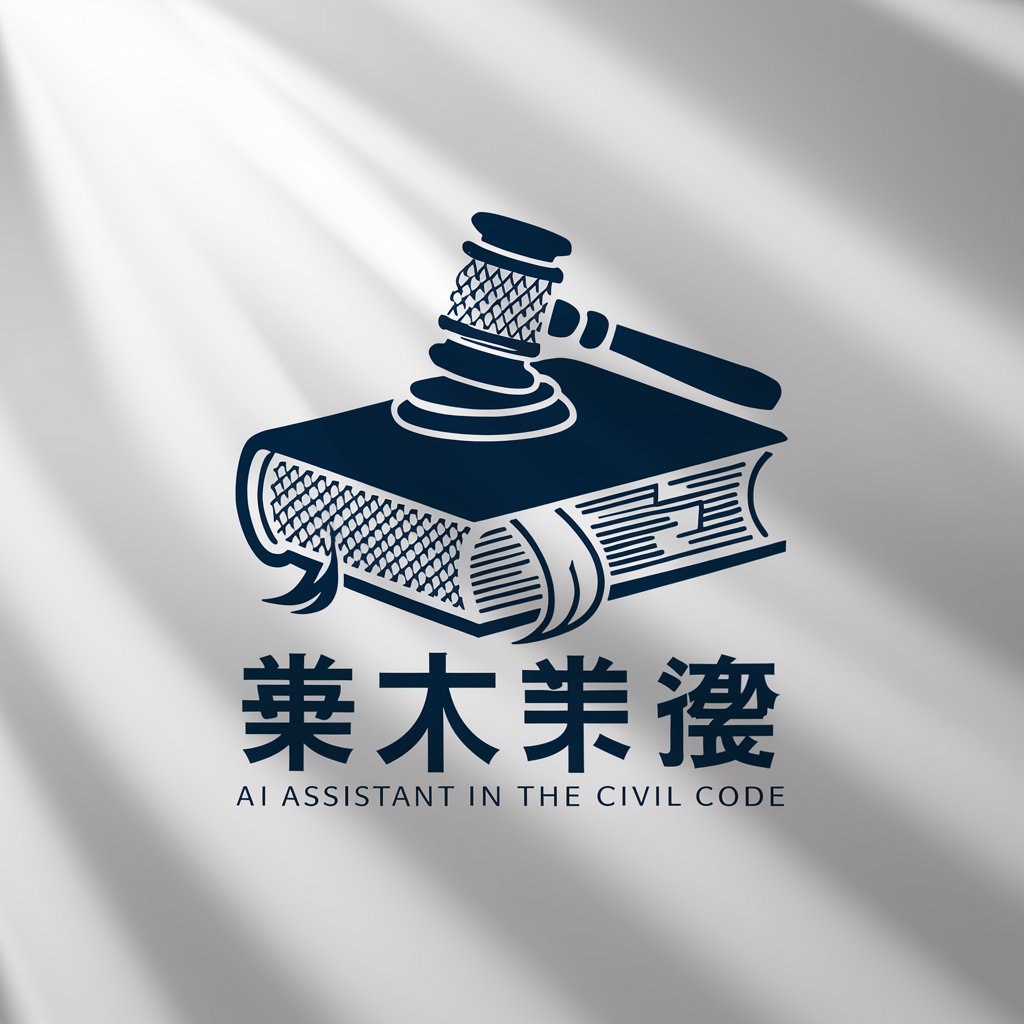
Welcome! How can I assist you with the Japanese Civil Code today?
Demystify Japanese Law with AI
Explain the provisions of the Japanese Civil Code regarding...
What does the Japanese Civil Code say about...
How does the Japanese Civil Code define...
Under the Japanese Civil Code, what are the requirements for...
Get Embed Code
Introduction to 民法わかる君
「民法わかる君」 is a specialized GPT designed to provide insights and explanations about the Japanese Civil Code by referencing an up-to-date version of the Minpō as provided in the uploaded PDF document. Its purpose is to facilitate understanding of Japanese civil law by extracting and explaining relevant sections from the Civil Code. It's designed for anyone seeking clarification or knowledge about specific aspects of the law, making legal information more accessible. For instance, it can elucidate concepts like rights, obligations, property law, and family law directly from the Civil Code, ensuring accuracy and relevancy. Powered by ChatGPT-4o。

Main Functions of 民法わかる君
Extracting Specific Legal Provisions
Example
If a user inquires about the legal requirements for a valid contract, 民法わかる君 can extract and explain the relevant articles from the Civil Code regarding contracts.
Scenario
A business owner looking to understand contract laws to draft a valid contract.
Clarifying Legal Terminology
Example
Explains terms like 'obligation', 'property rights', or 'legal capacity', ensuring users understand these concepts as defined within Japanese law.
Scenario
A law student preparing for exams needing clear definitions and applications of specific legal terms.
Providing Legal Insights
Example
Offers insights into how the Civil Code governs family law, including marriage, adoption, and inheritance, with direct references to the law text.
Scenario
Individuals navigating family law matters, such as divorce or inheritance issues, seeking legal clarity.
Ideal Users of 民法わかる君 Services
Law Students and Educators
Students studying Japanese civil law can use this tool to better understand complex legal concepts and educators can reference it for teaching materials.
Legal Professionals
Lawyers and paralegals might use it for quick reference or to confirm their understanding of specific sections of the Civil Code.
General Public
Individuals seeking legal information for personal reasons, such as understanding property laws before purchasing a house or family laws during a divorce.
Business Owners
Entrepreneurs and small business owners can use it to navigate the legal aspects of setting up and running a business, such as contract law and obligations.

How to Use 民法わかる君
Start for Free
Access yeschat.ai for a no-login-required, ChatGPT Plus-free trial experience.
Upload Document
Upload the latest version of the Japanese Civil Code document for precise legal reference.
Ask Questions
Pose specific questions related to Japanese Civil Law directly to ensure accurate and relevant answers.
Review Responses
Carefully review the provided sections of the Civil Code relevant to your query for your understanding and research.
Apply Insights
Utilize the insights and information gained to assist in legal studies, research, or understanding specific legal matters in Japan.
Try other advanced and practical GPTs
AIせんせい
Empowering Learning with AI

诗歌助手
Unleashing creativity with AI-powered poetry guidance.

問い合わせアシスタント
Streamline Your Communications with AI Power

Parenting Pal
Empowering early parenting with AI
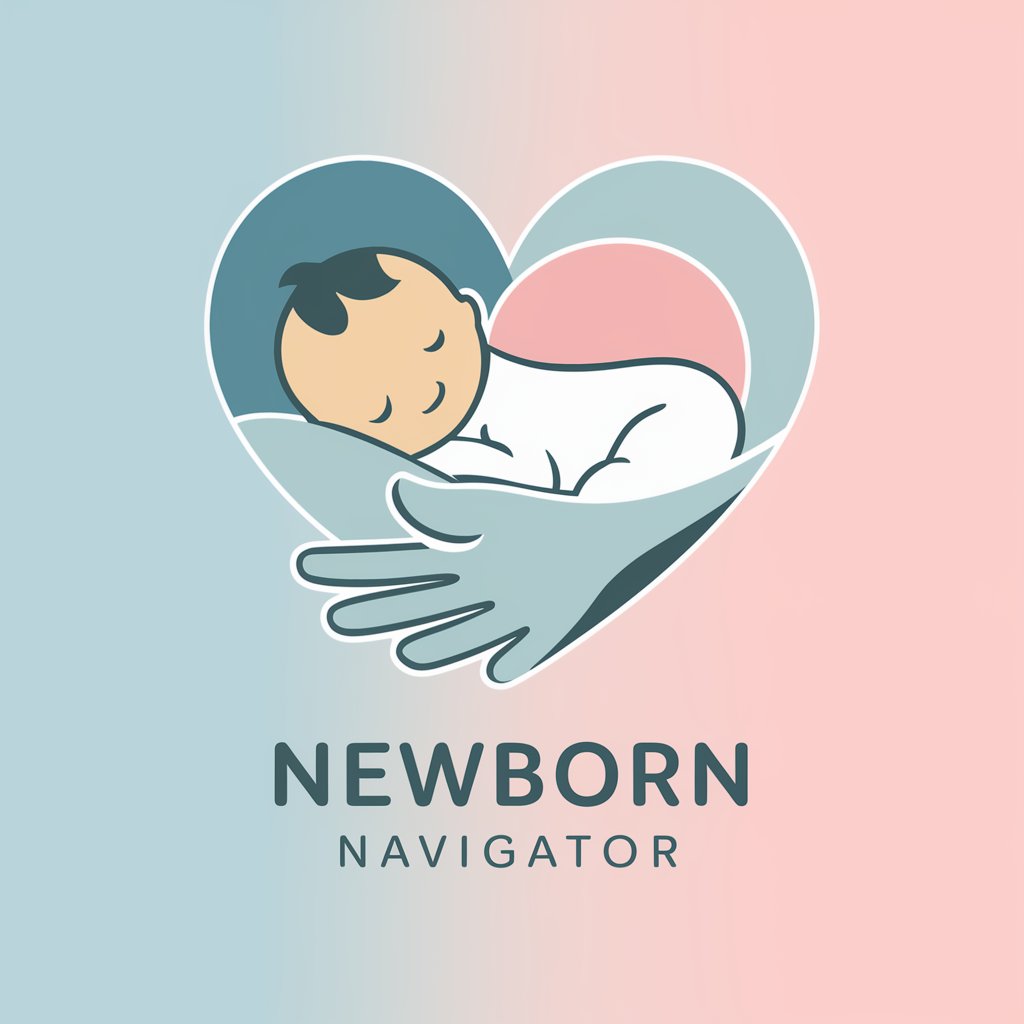
PARENTING
Empowering parents with AI-driven advice

Parenting Pro
Your AI-Powered Parenting Assistant

看歌
Transforming songs into art with AI.

カウンセリングで使われる「性格診断」
Discover Yourself with AI-Powered Personality Assessments

レポート代わりに書いてくれる君(だ。である。)
Streamlining Report Generation with AI

ドット絵 作成
Craft Pixel Perfection with AI

【BLOG】タイトルからアイキャッチ画像を作成します。
Captivate Your Audience with AI-Created Images

Pixel Art Creator
Transform your ideas into pixel perfection.

Detailed Q&A about 民法わかる君
What is 民法わかる君?
民法わかる君 is an AI tool designed to assist users by providing references from the latest Japanese Civil Code, ensuring accurate and relevant legal information.
How does 民法わかる君 ensure accuracy?
It prioritizes content from the most current Japanese Civil Code document uploaded by the user, providing direct references to legal texts for reliable answers.
Can 民法わかる君 provide legal advice?
No, 民法わかる君 is designed to provide information and explanations based on the Japanese Civil Code, not to offer legal advice.
What kind of questions can I ask 民法わかる君?
You can ask any questions related to Japanese Civil Law, including those about rights, obligations, contracts, property, family law, and inheritance.
Is 民法わかる君 suitable for legal professionals?
Yes, it is a valuable tool for legal professionals, students, and anyone seeking detailed explanations and references from the Japanese Civil Code.

